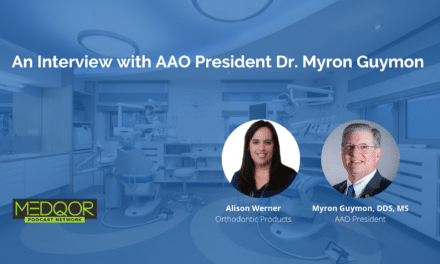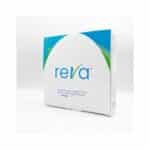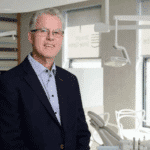The American Association of Orthodontists (AAO) announced last month that beginning in 2023 it will open its AAO-Wharton Mastering the Business of Orthodontics (MBO) program to office managers employed by AAO member practices. The online program, launched in 2021, was created to give AAO member orthodontists formal business training to help them succeed as entrepreneurs and small business owners. Recognizing that office managers are often key to a practice’s success, the AAO is now offering the same training to office managers.
As AAO President Normal J. Nagel, DDS, recently stated, office managers are often to “whom many practice owners entrust significant management and leadership duties.”
The AAO-Wharton program is taught asynchronously by faculty from the Wharton School of Business at the University of Pennsylvania who have teamed up with expert orthodontists and orthodontic practice consultants.
To learn more about the program in general and the inclusion of office managers, Orthodontic Products Chief Editor Alison Werner spoke to Anil J. Idiculla, DMD, a graduate of one of the first cohorts and now one of the AAO instructors with the program, and Renee Doyle, DDS, MS, an orthodontist in private practice in Illinois, who completed the program this fall.
Idiculla not only talks about his experience as a student but also breaks down the 8-week MBO cohort program and what attendees, both orthodontists and office managers, can expect. Meanwhile, Doyle shares where she was as a small business owner before starting the program and how the program has changed her approach. She also explains why she thinks the program is ideal for office managers.
Both AAO member doctors and their office managers can now enroll for the next program cohort, which will begin January 11, 2023. The program includes access to AAO Business Coaches who will support attendees throughout the course and will lead peer-to-peer discussions.
Those who complete the program will earn a Wharton certificate and 18 units of CE. OP
Podcast Transcript
Alison Werner:
Hello and welcome to the Orthodontic Products podcast on the Medcor Podcast Network. I’m Alison Werner, Chief Editor of Orthodontic Products. Today we’re going to talk about the AAO partnership with the Wharton School at the University of Pennsylvania, which is well known for its MBA program. In 2021, the AAO partnered with Wharton to offer a member exclusive online learning program designed to help orthodontists build their business and leadership skills. The Mastering the Business of Orthodontics or MBO program is taught by Wharton professors and AAO instructors and features guest speakers who are considered orthodontic industry experts.
The course provides formal business training to help orthodontists like yourself succeed as entrepreneurs and small business owners.
Now, when it first launched, it was intended for orthodontists, but the AAO recently announced that they’re opening it up to office managers employed by AAO member practices. Office managers are vital to a practice and as current AAO president, Dr. Norman Nagel recently pointed out, many practice owners entrust significant management and leadership duties to their office managers.
So to learn more about the program and the recent change, I got a chance to speak to two graduates at the program. First up is Dr. Anil Idiculla. Dr. Idiculla completed the program in the summer 2021 and is now an AAO faculty member for the program. In private practice in suburban Denver for over 16 years, Dr. Idiculla was recently elected as a trustee at large to the AAO board of trustees.
Second, I had a chance to talk to Dr. Renee Doyle, a recent graduate of the AAO program this past fall. Dr. Doyle has been in private practice in Columbia, Illinois for nine years and completed her residency at the Center for Advanced Dentistry at St. Louis University.
So let’s kick off this episode with my interview with Dr. Idiculla. Dr. Idiculla, thanks for joining me today. I know I briefly explained what the program is in my intro, but can you give our audience a little more info on the focus of the program and what attendees can expect?
Dr. Anil J. Idiculla:
Yeah. So the MBO partnership with Wharton and AAO was developed by the AAO to give orthodontist an expanded knowledge on the business of orthodontics specifically and business all around. Many people might ask, what’s the business training in orthodontic residencies? And it varies residency to residency, but the majority of the training is really on moving teeth in an effective and safe way for patients, because that’s the bulk of what we do clinically.
But the vision was really to expand our business training, which can be very minimal in some programs and then again, thrown to the wolves when you’re in private practice or any kind of practice modality. And the moving teeth part actually becomes quite easy over time, but then we have to learn the business aspects and a lot of times that can be through trial and error, and through trial and error of friends or trial and error on your own. And the AAO felt incredibly strongly that one of our goals is to equip our members with the best tools possible to be successful, not just in moving teeth, protecting patients, protecting our communities, but also running a profitable and smart and sustainable business so that we can continue to do this for years to come. So we are pretty privileged to partner with Wharton of any school to equip our members with those tools.
Alison Werner:
Can you talk a little bit about where you were? Because you were an attendee of one of the first cohorts. I’m wondering where did you see yourself before you started the course?
Dr. Anil J. Idiculla:
So I’m one of those orthodontists that always dreamed of getting his MBA, and I know there are more out there. Just because once you graduate, like I mentioned, you’re really focusing on straightened teeth in a safe and effective way and really then you start growing your business.
So I started on my private practice in 2008 and really learned from consultants and friends, and that fast tracked things for me in a good way. But I realized an incredible passion for the business side of things. So when this partnership with Wharton was announced, it got me excited for two different reasons. Number one, it was an opportunity to expand my business knowledge. And number two, personally biased, being from Philadelphia, Pennsylvania, going to Penn for undergrad, going to Penn for residency, Wharton was always the dream, reach school. If you’re going to get your MBA, it better be from Wharton. And I know that’s a little bit biased on my end, but that was my dream. So the stars aligned and there was a mention of the pilot program to test it out and see how it was. So I was totally honored to be part of that initial offering.
Alison Werner:
Can you talk a little bit about how the course is run or how the program is run and what attendees can expect?
Dr. Anil J. Idiculla:
Yeah, for sure. So there are eight modules that are taught by the Wharton professors and AAO instructors are teamed up with the Wharton professors along with other guest speakers in our industry. The different topics are, there’s productivity, there’s financial management, financial acumen, marketing culture, leadership, building and developing your team, which is super relevant nowadays. And then the final module which I got to cohost is leading the life you want, which really talked about things that were personally important to me about pursuing a meaningful life through your own unique lens and becoming a better leader.
So there’s eight different areas you focus on throughout the course, and I really didn’t know what to expect going into it, because I know an MBA is quite challenging, but this is a condensed course. But the nice thing is it’s very specialized to orthodontists, which is why you have that co-host liaison bridge. And I was incredibly impressed, I think is the word, because of how tough it was. And I don’t mean this to intimidate future attendees of this course, but it is a very meaty course that is full of certain times where I know my brain would hurt. So it was great and well worth it. It wasn’t a dumbed down course by any means.
Alison Werner:
So the course is taught online and runs asynchronously. What was that experience like as someone who is working full-time while taking these courses?
Dr. Anil J. Idiculla:
To me, it seems like that’s the only way a course this could succeed across our specialty, because there is a pace to the course where you do have a set amount of time, but there are some weeks and some days when on a Tuesday at 6:00 AM, I’ve got tons of time and it was an early night the night before and I’ve got two hours to devote to the course. And the following week, a Thursday at lunch is when I have the best time to devote to the course. So by having it be asynchronous, it gives a lot of flexibility for the attendees to maximize how and when they learn, but also continue with a pace for the entire cohort to get through the entire course and each module relatively at the same time. So it’s really customized and flexible for every single orthodontist, but with some uniformity for success.
Alison Werner:
So the program was originally aimed at orthodontists, but now it’s actually expanding to enroll office managers. Why the change, and what are your thoughts on moving in this direction?
Dr. Anil J. Idiculla:
So the biggest motivation for the change is the fact that we got a lot of questions from orthodontists and office managers asking if it would be open to them. In many offices, there is an office manager and that office manager’s role can be quite varied. Sometimes it is overseeing some of the clinical care, but usually there’s a clinical department or a clinical lead or the orthodontist that focuses on that specifically.
From the business point of view, such as the HR, retaining a team, hiring a team, productivity, evaluating numbers, many times that can fall on the office manager’s shoulder to assist the orthodontist and or even take the lead and then educate the orthodontist along the way on how the business is actually doing from a P&L point of view, a profitability point of view and things like that. So there seemed to be a large desire from our doctors and their managers to give access to this course. So therefore it actually seemed like a no-brainer to expand it to them.
So it’s an exciting offering to further our mission. The AAO is really to be an incredible resource to promote and defend our specialty, and that includes team members, not just the doctor members as well. So it’s nice to see the AAO reaching out to key team members of our doctor members in this way.
Alison Werner:
Okay. Is the curriculum the same for both?
Dr. Anil J. Idiculla:
It is, it is, and it is consistently refreshed and relevant for all audiences.
Alison Werner:
Each component features a team of instructors, and as we talked about, you’re one of these instructors now and you’re part of one of those teams. Can you talk about this approach and some of the instructors the enrollees will be hearing from?
Dr. Anil J. Idiculla:
Some of the familiar orthodontic co-host or moderators or AAO instructors per se are and guest speakers just to name a few, it’s Scott Law, who’s one of the most renowned orthodontists in our entire specialty. Chris Benson, who I would view as probably the industry leading expert on the landscape of the AAO of orthodontics and where it’s headed, leading indicators and just the financial health of practices as a whole. You have Dan Wicker, who’s one of the managing partners of Kane Waters. So he is well known and a speaker all across our specialty that you’ll see. My good friend Dan Bills out on the East Coast who is a marketing guru and just one of the biggest champions in our specialty that gives back all the time. And my other good friend, Dr. Natalie Periesy out in Pennsylvania. Grant Collins, who is one of the biggest TikTok and online celebrities of all the orthodontic industry.
Other people that you have is Dr. Brent Larson, previous AAO president and faculty member. Lots to learn from him as always. Warren Cohen, Tracy Moad, just a ton of people. The specific Wharton instructor I can speak to the most is for the final module that I got to co-host and that was Professor Stu Friedman. And I can tell you his perspective and his way of educating is absolutely mesmerizing and magical and really speaks to the attendees and unlocks what I believe is their inner potential and really enables us orthodontists to really think about the meaning of our lives and why we do what we do and put in the background, our clinical hats and just reevaluate our purpose and our path.
His module was such a success and there was such a yearning for more that initially, when I took the course and the pilot program, there was a section of his entire course that was customized for the MBO, and it has expanded since then to include almost his entire curriculum that he gives to the Wharton students.
So I think it speaks to how the AAO has kept things fresh and relevant and have pivoted for the members and how Wharton has been so open in what they want to offer our entire specialty.
Alison Werner:
Well it sounds like this was really impactful both for you as the student and then also being contributing as a one of the instructors. So I’m wondering what have you taken away for your practice? What changes did you implement or what did you find most impactful as you were moving forward?
Dr. Anil J. Idiculla:
That’s a good question and attendees will actually get to hear my perspective on change in module eight. So I will leave it up to the audience. That question will be answered in the future when you enroll, because you’ll see my own personal take on how I pivoted my life, specifically from this module and from Professor Friedman and changes that I’ve made that are still true to this day.
Alison Werner:
Okay, excellent. Well, one other question I had about the program before we wrap up is what support do enrollees receive during the program or even after? Is there some kind of community that’s built, or how does that work?
Dr. Anil J. Idiculla:
There is. There’s a great discussion platform for each module, and there’s a lot of activity on it. And this, I call myself a co-host, but AAO instructor or the AAO instructor that’s assigned to that module moderates, and there’s a lot of activity there. There’s a lot of questions answered. And the one thing that’s really great about the community that AAO is built is there’s a lot of interaction and going through this module together with your own cohort, you form a bond with that group and you do a lot of learning from each other.
So there’s a lot of community that is built and a ton of support throughout the entire program. You’re not just on your own on an island taking the course, here’s your certificate, congratulations, you aced the quiz. It is an interactive classroom type of format even though it’s virtual and asynchronous.
Alison Werner:
Well, I’d like to thank Dr. Idiculla. And now to get another graduate’s perspective, here is my conversation with Dr. Renee Doyle.
Now Dr. Doyle, you recently completed the program. Can you talk about where you were in your practice when you decided to enroll?
Dr. Renee Doyle:
Yes. So I have a small practice in my hometown community, which is just outside St. Louis, Missouri. I started the practice in 2014, and I started it from scratch. So I’ve been out for a while and decided to take the course as a update my business skills and refresh my knowledge.
Alison Werner:
And so how would you describe yourself as a small business owner prior to this program?
Dr. Renee Doyle:
So prior to the program, I would describe myself like most orthos, hardworking, diligent, a true passion for the clinical side. I love learning new techniques, new systems for the clinical side, and maybe got stuck in the clinical side where it was very comfortable to continue learning. And I thought to myself at one point, maybe I should share that focus and refresh, update my skillset on the business side of things.
Alison Werner:
Okay. So what topics in the curriculum that they covered did you find particularly valuable?
Dr. Renee Doyle:
So when I went into the program, I initially had expected more metrics, more numbers, financial talk. And while that was significantly part of the program, what I found valuable were some of the other maybe overlooked pieces like marketing strategies, office culture, leadership, some of those pieces that I didn’t expect initially when I signed up for the program, but also found very valuable.
I also liked that there was a double vision on each concept. So you had on a particular concept, you would have the Wharton professor giving you the why and the science and the study on the concept, and then you would have an orthodontic expert tying that into day to day practice. So merging those two pieces were helpful in me getting the most out of the course.
Alison Werner:
What was your takeaway on the format of the course? Because it is on online and it is asynchronous. How did that fit into just your daily routine or just how did you go about completing the program?
Dr. Renee Doyle:
So that was a big plus when I was looking. I knew I wanted to take a business course and that was a big plus in the Wharton program because it just seemed like I could easily implement it into my everyday routine without having to travel. I could watch the videos on my own time. If you did get behind on a week, you could easily catch up. I felt like I could easily catch up because some weeks are busier than others with vacation and whatnot. So that was a big bonus to me, the flexibility of the content and being able to manage that with everyday life.
Alison Werner:
So how did the program you think change? You’re only a couple weeks out from finishing it, but how did it change your perspective as a small business owner?
Dr. Renee Doyle:
So it gave me a greater big picture perspective. So I feel like clinically, when I’m learning a topic, I love to know the why and the how, and I felt like I got that more than I’ve ever received that for a business course. So I was able to understand, okay, why is this important, and why do we study this? And then also, having an orthodontic expert tie it into how I can bring this to my practice. So just big picture enlightenment, more so than I’ve ever had in my formal training or pearls that I’ve picked up over the years.
Alison Werner:
Okay. Again, it’s only been a few weeks, but are there one or two things that you can talk about that you want to implement or some changes you want to make as you move forward?
Dr. Renee Doyle:
Yes. So we’ve made the initial changes of organizing our metrics, setting some new goals based off of the program. I’ve shared my knowledge with my team, and I think this is where opening the program up to office managers is really going to be helpful because implementation is key. And as a small business owner, we all feel like there’s lots on our plate. So having someone else with shared knowledge on the course I think would just make it that much easier to implement into the practice.
But yes, we have started some initial pieces and I feel very, after taking the course, very inspired to keep going with what other changes can we make to the practice.
Alison Werner:
Great. So bottom line, why do your peers and or office managers need this program?
Dr. Renee Doyle:
So the business side of orthodontics is always changing. Looking back when I started my practice to today, so much has changed, probably more so that I’ve realized after taking the course than I initially thought before taking the course. So much changes in our business world, and I think it’s imperative to one, get a refresh on some of those basic concepts and then also upgrade your knowledge to where the business market is today for orthodontics.
And then having an office manager be able to share that knowledge and that inspiration with you and take that to your practice will be even more helpful.
Alison Werner:
Well, with that, I’d like to thank both of my guests for taking the time to share their experiences with the AAO Wharton program. The program sounds like a great opportunity to really drive the orthodontic practice forward and now gives office managers an opportunity to help with that forward momentum. And to our listeners, if you would like more information about the program or are interested in applying, please reach out to the AAO member services and be sure to subscribe to the Medcor Podcast network to keep up with the latest Orthodontic Products podcast. And to keep up with the latest orthodontic industry news, be sure to visit orthodonticproductsonline.com. Until next time, take care.














